Prokhor, Oleksandr, Yuliia, Oleksandr, Roman, Mykhaylo, Mariia and Mykhailo. Eight young Ukrainian politicians from six different political parties. They had the chance to come to the Netherlands for a three-day training program, organised by the EFF, the KAS and the UIIP. In this report, you will read more about the group’s experiences!
About the EPLC project
The study visit was part of the Eastern Partnership Leaders for Change (EPLC) project. This project started in 2016, with funding by the German Federal Foreign Office for promoting the Civil Society in EP countries. The project is a collaboration between the Konrad Adenauer Stiftung (KAS), the Ukrainian Institute for International Politics (UIIP) and the Eduardo Frei Foundation (EFF). The target group is young members of political parties and NGOs from the three Eastern Neighborhood countries with EU Association Agreements - Moldova, Georgia and Ukraine.
In a competitive selection process, about 120 participants are selected every year for regional seminars all over Ukraine, where they learn about the history of the European Unity and European Neighborhood Policy tools as well as leadership and social media skills. Furthermore, this project provides the stage for critical discussions on the common challenges of the three countries in relation to the European Union rapprochement. Following the regional seminars, the most engaged and outstanding participants (approx. 50) are invited to the forum in the following year in Kyiv. There are now over 300 Alumni, who keep in touch through an online social media platform.
For the first time in the EPLC project, a three-day study visit to the Netherlands was organised. The goal of this visit was to give the EPLC alumni students the opportunity to get to know the Dutch political system and learn more about the relationship between the Netherlands and Ukraine. After a competitive selection process, the eight best candidates were selected to come to the Netherlands.
Day one: Campaigning
On Wednesday the 8th of May, the time was finally there. The group arrived at Schiphol airport in the early afternoon. After travelling to The Hague, the group arrived at the CDA Headquarters, where they were welcomed by Astrid Frey (EFF), Isabel Weinenger (KAS) and Nadija Afanasieva (UIIP). After a small introduction session, the focus was on campaigning. The first speaker was Chantal Hakbijl, candidate number 6 on the list of the CDA for the European elections of the 23rd of May. Chantal gave the group an insight into the selection process and her personal campaign. After this, Hege Knaven, International Secretary of the CDA took the stage. Hege told the group about the process of writing the election program for the European elections, focusing on how to involve party members in the writing process. Henk Nieweg, CDA’s online communications advisor, ended the training session with a presentation about the current EU election campaign. The group was surprised by the role of social media in Dutch election campaigns since television is still the main source for campaigning in Ukraine.
The day ended with a ‘walking dinner’, where the group got the opportunity to meet with several EFF trainers and members of the foreign affairs committee of the CDA. During the dinner, three members of the group gave presentations about Ukraine, focussing on the political situation, the rule of law and the economic developments.
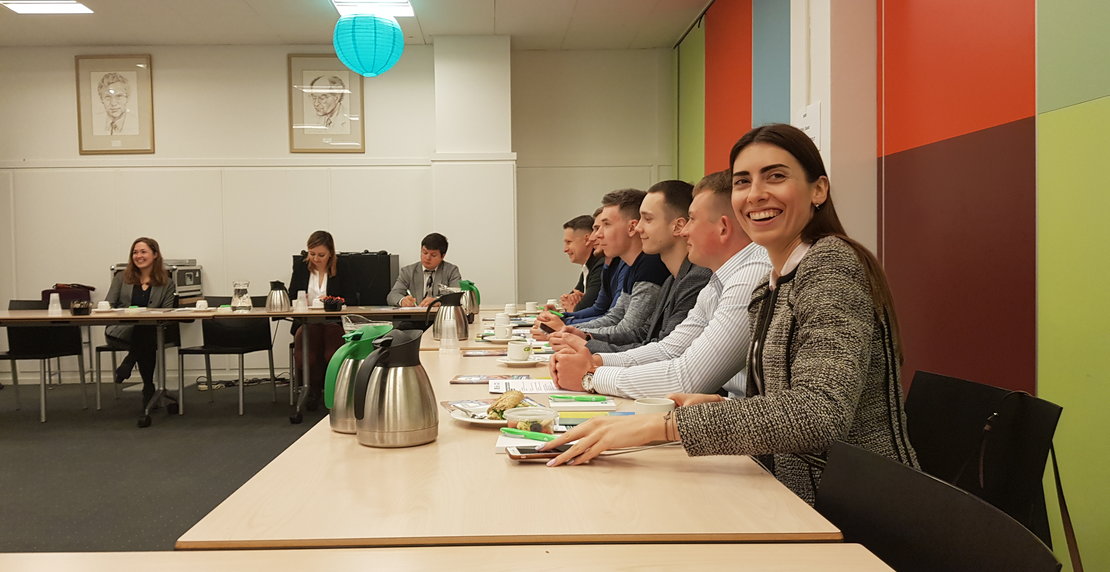
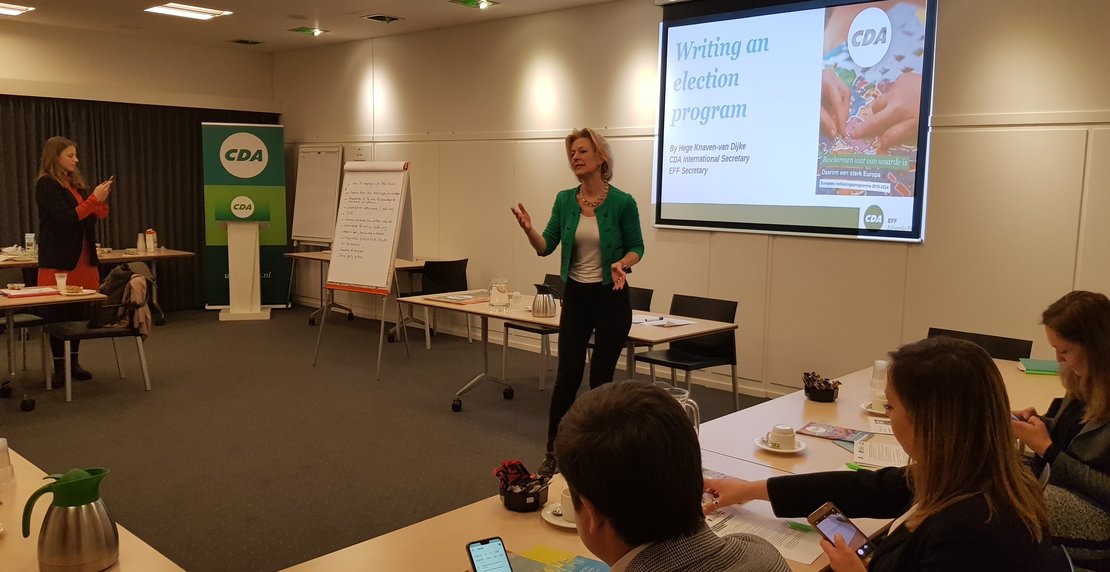
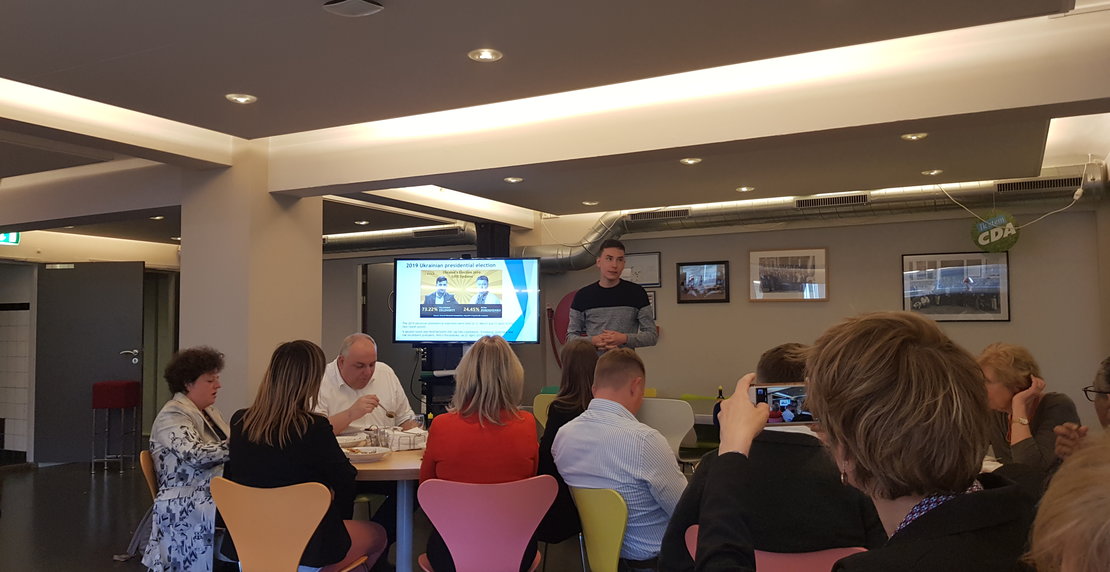
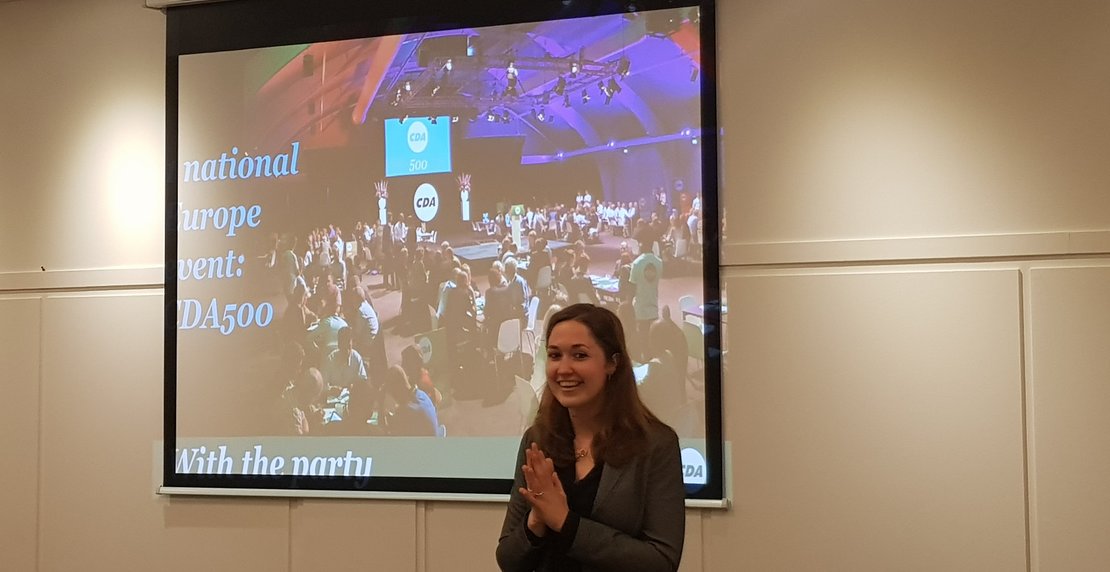
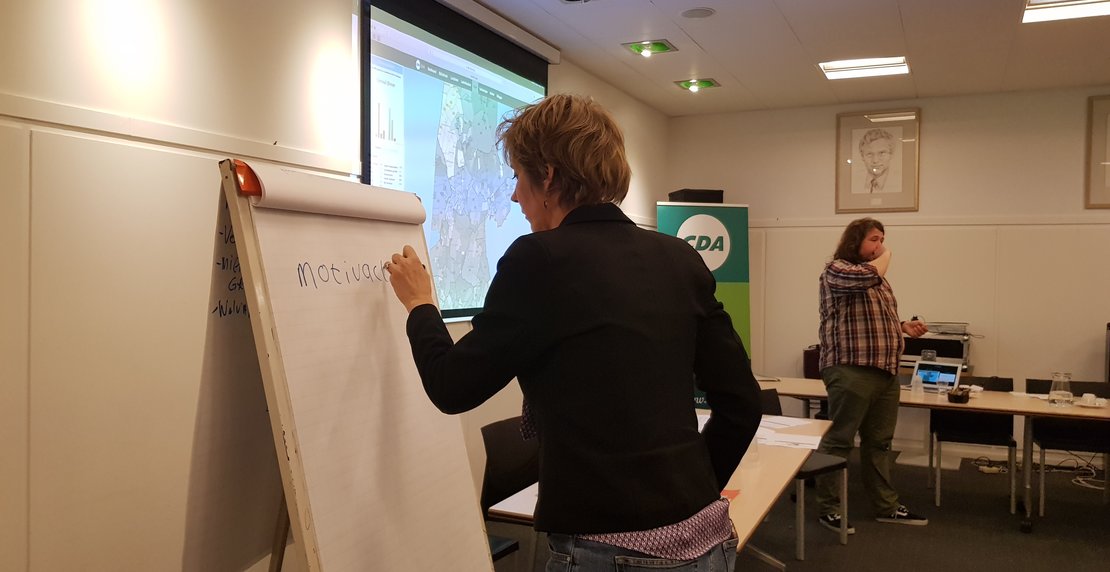
Day two: Sustainability
Day two was full of field trips, with sustainability as the main topic. First, the group travelled to the municipality ‘de Hoeksche Waard’, where they were welcomed by CDA Alderman Paul Boogaard and CDA council members Karoline Vorthoren and Basjan Niemansverdriet. After a short introduction about local politics, three local youth members talked with the group about the participation of youth in Dutch politics.
Next stop: CSG Willem van Oranje, a secondary school in Oud-Beijerland. The group sat down to talk with students about their sustainability projects. Fun fact: The school provides itself with 40% of energy, which is collected from solar panels that are placed on the roof of the school. Together with the students, the group went to the roof to take a look at the solar panels. Of course, also a great opportunity to take some pictures with the Ukrainian flag!
After climbing down from the roof (safely), Paul took the group to one of the biggest farms in the area, which is owned by brothers van den Hoek. Here, the group learned about sustainable farming and the usage of field margins. After a tasty lunch, the brothers van den Hoek gave the group a tour around the farm. Just like the school, the farm is driven by energy provided by solar panels which are placed on the roof of the farm. The solar panels here actually provide way more energy than needed, only 10% is used. Therefore, the brothers decided to build a battery which stores the energy provided.
After the visit to the farm, it was time to go back to the Hague for the last activity: a visit to the Dutch Parliament. The group met Harm Buisman and Mariska Neefjes, policy advisors on EU affairs in the Dutch Parliament, with whom they talked about the relationship between the EU and Ukraine. The visit was concluded with a tour through the parliament building. To the surprise of all the participants, they got to see the impressive plenary room.
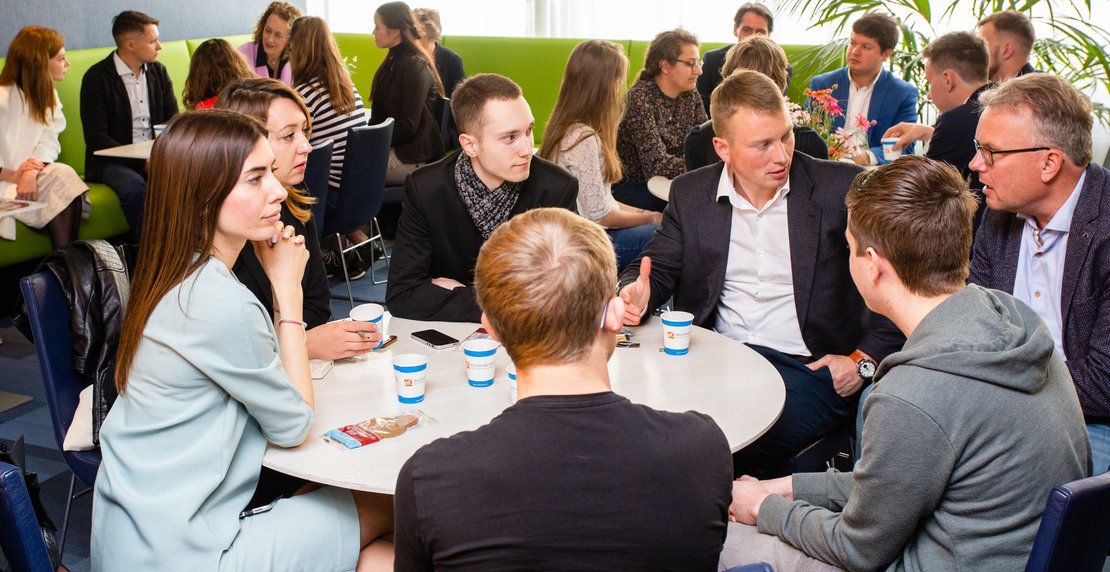
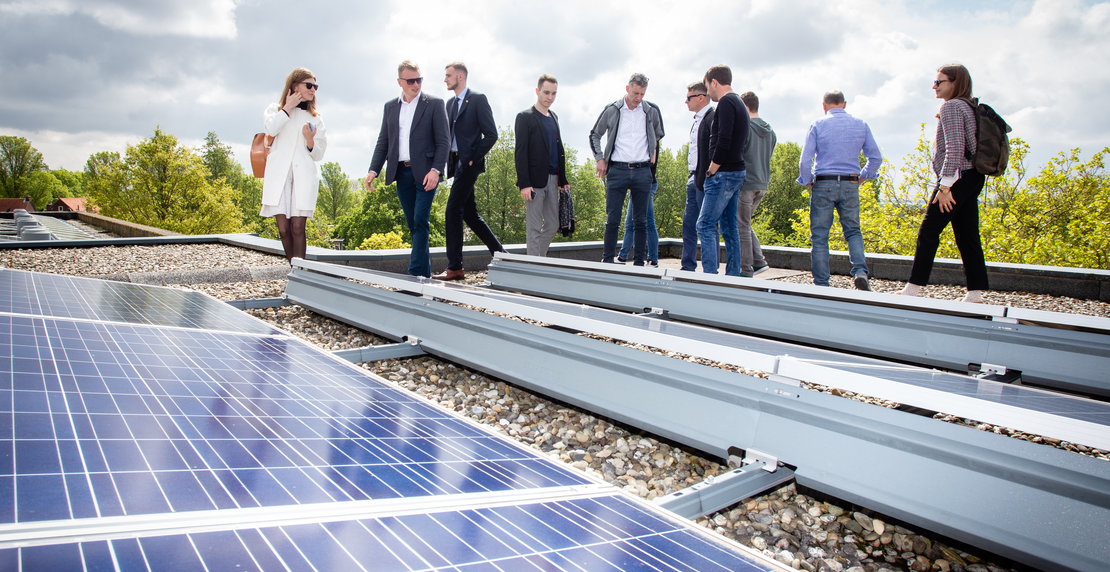
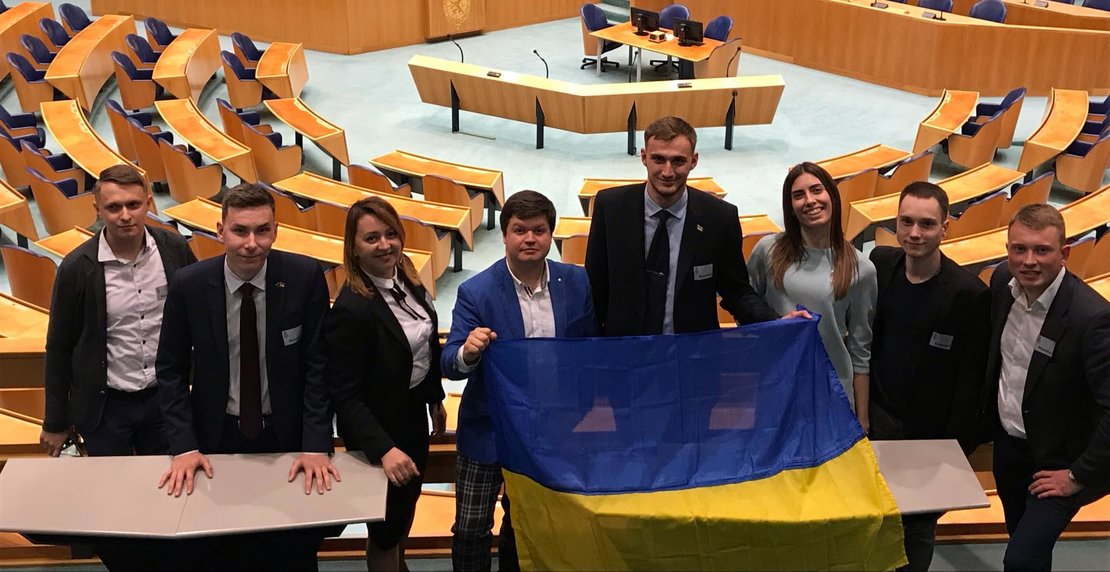
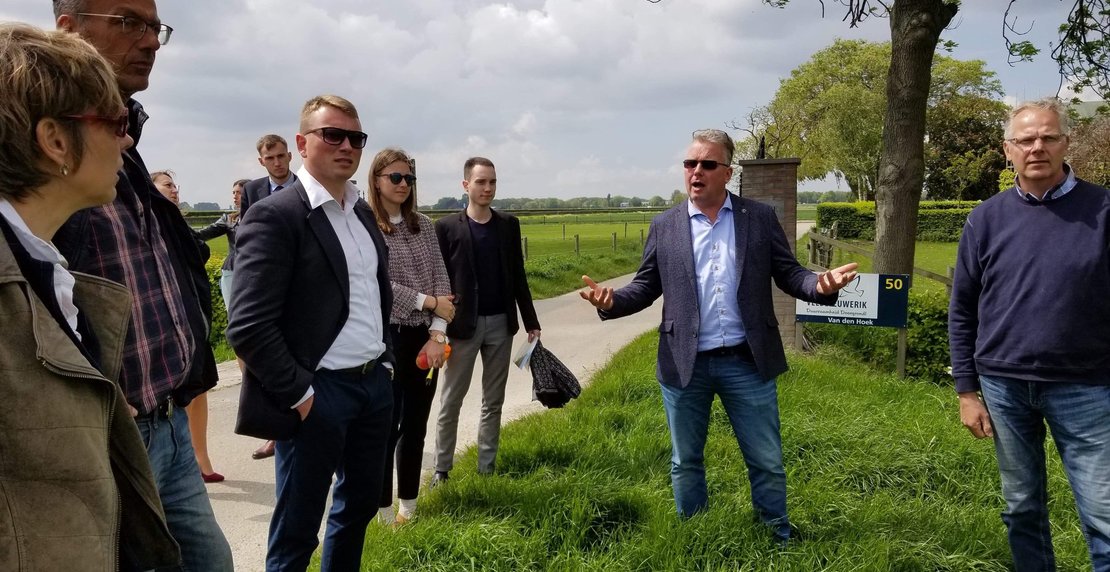
Day three: The Netherlands and Ukraine
Day three was mostly focused on the relations between the Netherlands and Ukraine. The first activity of the day was a visit to the Ministry of Foreign Affairs. The group met with Tomas Ubels, policy officer on Ukraine, and Pieter van den Berg, Senior Policy Officer on the Eastern Partnership. During the interactive discussion, Tomas and Pieter explained the Dutch and European position towards Ukraine. The complex relationship between Ukraine and Russia was also an important topic during this meeting.
After this, the group met with Sven Koopmans, Dutch MP for the liberal party (VVD). Sven told the group about his work as an MP, focusing on his portfolio: foreign affairs. Most of the time was spent on interactive discussions about foreign policy, relations with Russia and immigration.
After these two international topics, the scope was on Dutch politics again: human resource management (HR) in politics. Marc Haverkamp, CDA’s senior HR & Scouting officer. Marc gave insight into the selection process of the CDA, which the group was curious about after Chantal Hankbijl’s presentation on the first day. The group was also surprised by the fact that Dutch mayors are not elected. The main reaction was: “Doesn’t this encourage corruption?”
The last activity of the day, and also of the program, was a dinner at the conference of the youth organisation of the CDA, the CDJA. The conference was held at the communications museum in The Hague. Pleasant surprise: the location of the museum was right next to the Ukrainian embassy, which resulted in an unplanned visit! The group was warmly welcomed by the Ukrainian Ambassador Vsevolod Chentsov, with whom the group talked for 20 minutes about the work of the embassy and the relation with the Netherlands. After taking some pictures with the Ambassador, the group went to the CDJA conference, where they had dinner together with members and board members of the CDJA. The night was filled with meeting new people and discussing Dutch and Ukrainian politics.
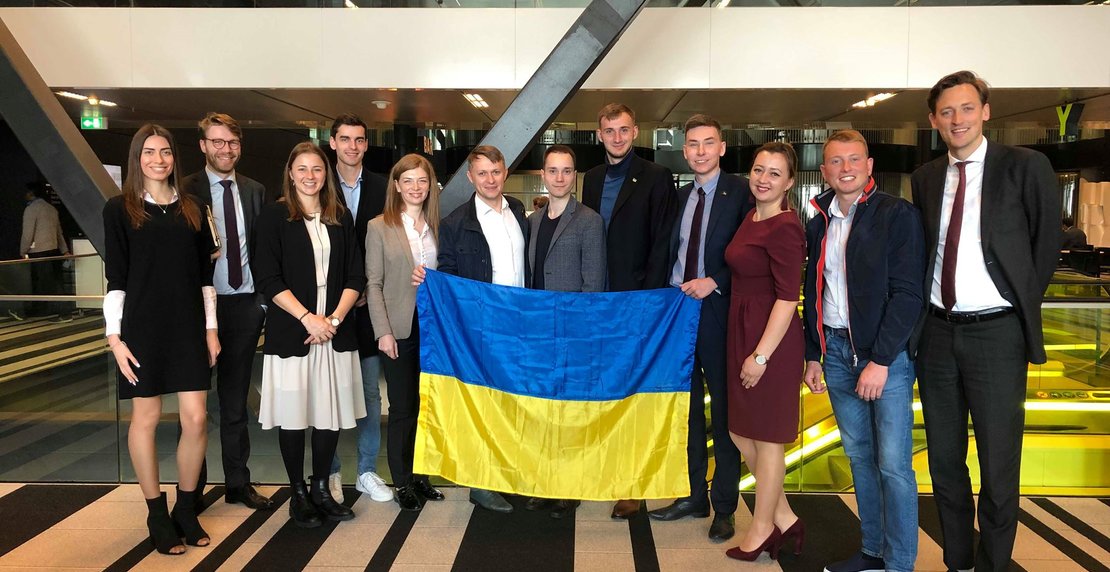
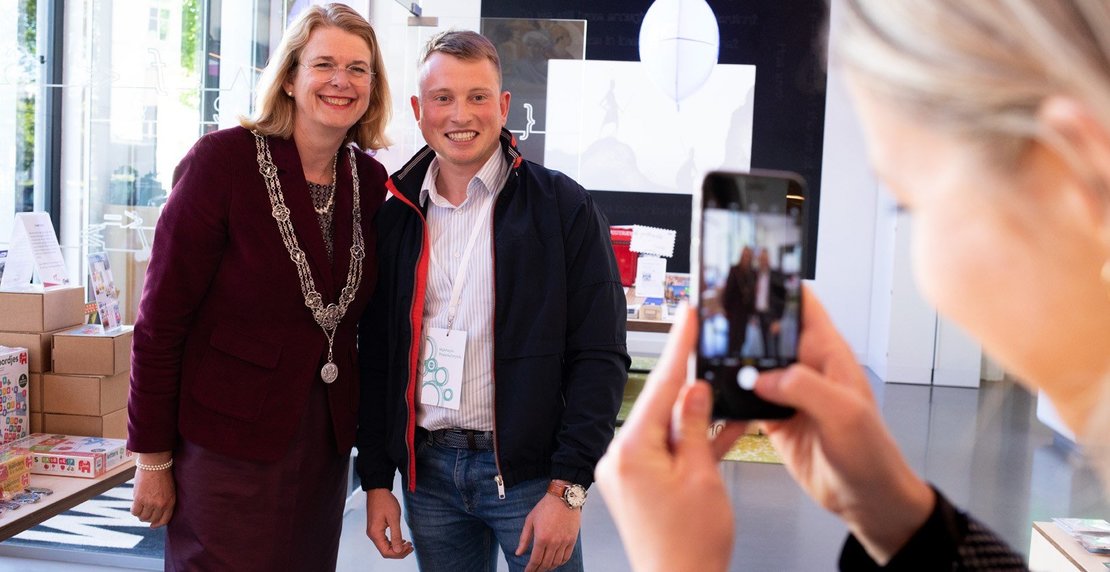
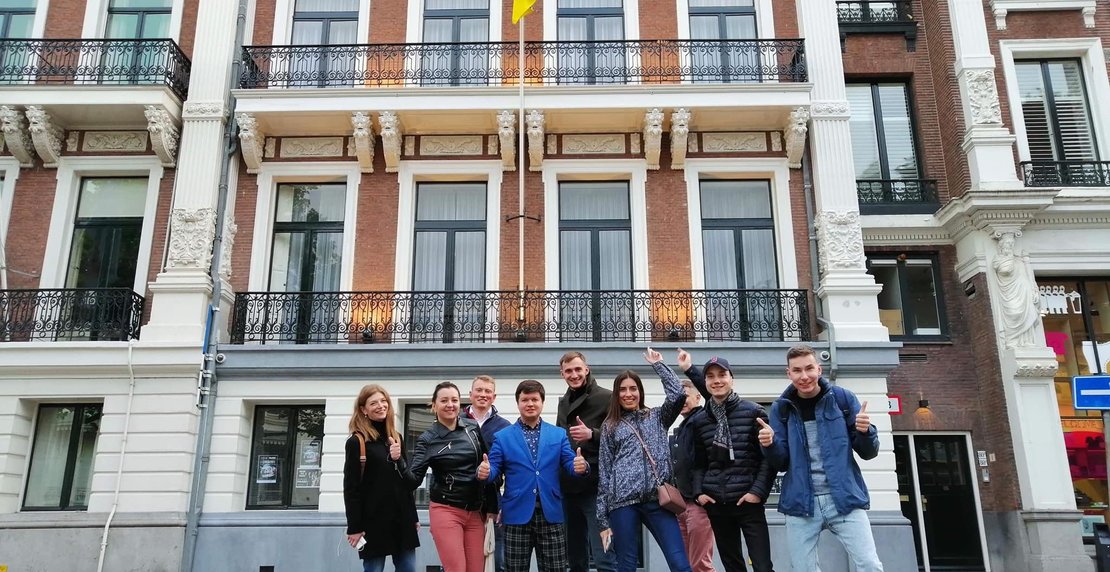
On Saturday the 11th of May, the group flew back to Ukraine. Looking back on this visit, the EFF is proud of her alumni students and the enthusiasm and quality they possess. We wish everyone good luck in their political careers. Also a big thank you to our partners, the KAS and the UIIP, for working together with us on the successful EPLC program!
